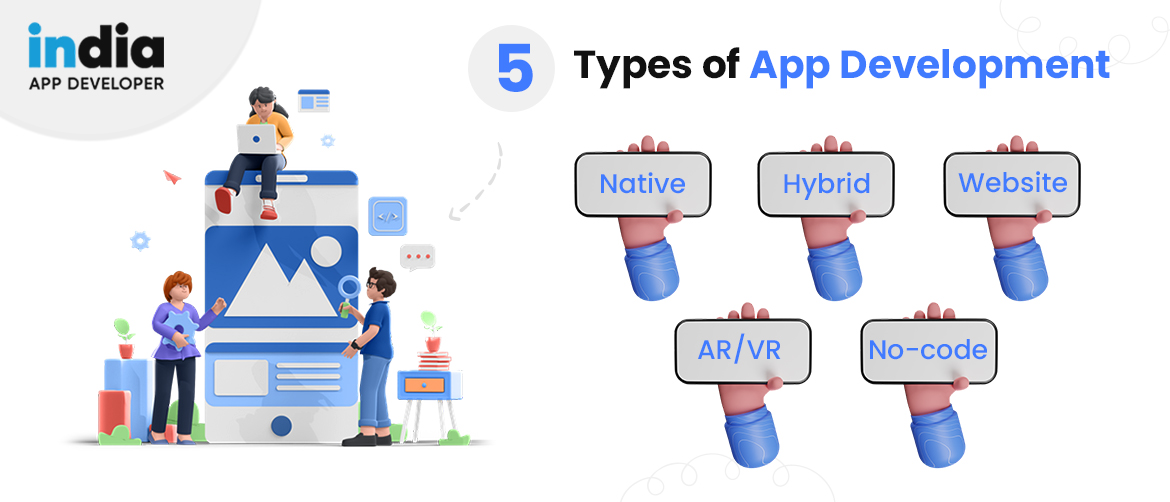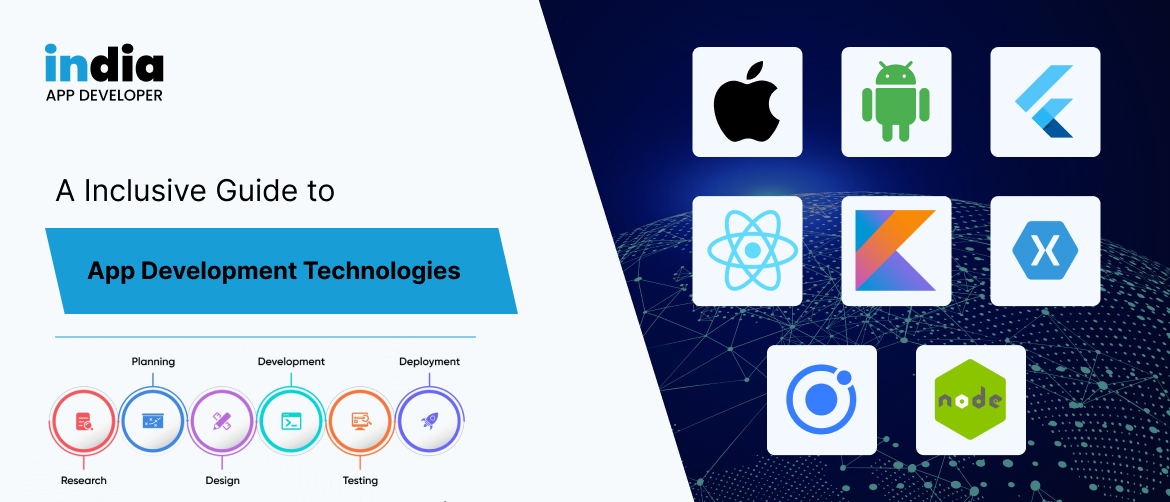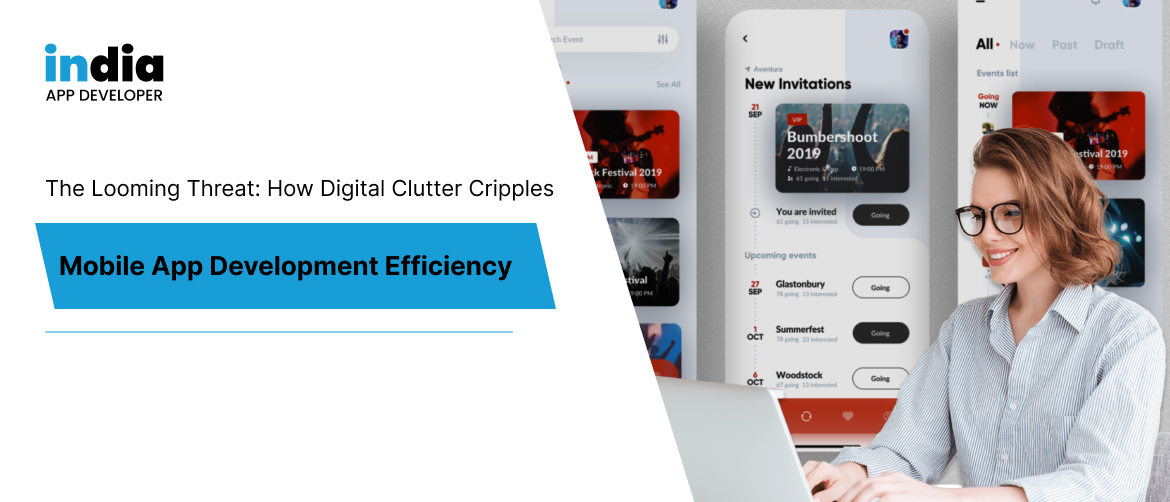Our dependence on smartphones has increased, so we can’t imagine life without them. A morning alarm, checking social media accounts (Facebook, Instagram, WhatsApp, Twitter), reading the news, listening to music, viewing videos on YouTube, tweaking the temperature and lighting, reporting on the progress of a project, and so on are all examples of such types of app development.
These diverse programs are all compatible with the major mobile operating systems and work together in real-time to make our cellphones useful. All sorts of businesses, from bars and restaurants to florists and hairstylists to doctors and even community-based products and services, are embracing apps to enhance the consumer experience.
In recent years, the mobile industry has seen meteoric growth. Is it time for your company to join the Mobile App Development revolution?
Businesses will be encouraged to create apps since consumers are expected to spend $156.5 billion on mobile app marketplaces in 2022.
The use of mobile applications in the promotion of goods and services may improve both the experience for the consumer and the success of the business.
It would help if you considered your end aim, your audience and how much they use mobile devices, your development approach, and your budget before creating an app.
The term “mobile application development” is being thrown about, and hundreds of new applications hit the market every year.
While most of us are at least somewhat aware of operating systems, such as iOS and Android, we are likely to be woefully ignorant regarding the exact technological platforms that App Developers Australia utilize when designing and developing applications.
The 5 Types of App Development
Native app development
Built specifically for mobile devices, or “native” apps Mobile applications that are “native” to one platform (such as Apple’s iOS, Google’s Android, or Microsoft’s Windows Phone) are built with that platform in mind. A benefit of the native platform is that it usually provides the best possible user experience. It’s faster and easier to use than alternatives since it was built from the ground up for this system.
Hybrid app development
These applications function in web browsers rather than on the designed devices, but they may be downloaded and installed the same way as native apps. It is the HTML5 language that is used to create all hybrid applications. Hybrid applications may be more efficiently developed, but they lack the speed and reliability of native programs. Your company may save time and money by avoiding the hassle of developing and supporting applications for several platforms. It works well for applications whose primary purpose is to provide content.
Website App Development
Responsive websites provide a unique experience depending on the device used to view them to adjust mobile users better. On the other hand, adaptive web apps adjust to the various sizes of mobile device screens. The layout of these applications never changes. The most common programming languages are used to create web applications, but they cannot access the hardware of mobile devices or be distributed via app stores.
AR/VR App Development
Games are often used as the foundation for AR and VR applications, which are then converted to the appropriate platform. For this reason, building and maintaining such an app is prohibitively expensive, plus most businesses don’t have a need for one.
No-code development
No-code development is an excellent alternative for organizations wanting to construct a Minimum Viable Product (MVP) fast and inexpensively to test and verify their concept before spending substantial amounts of money completing their final iteration.
Does My Business Need a Mobile App?
There is a growing amount of demand for businesses all over the globe to increase their rate of development via the use of innovative software in order to keep up with the dynamic nature of global marketplaces. Though there is a growing need for software applications, rushing the development process often results in worse products. Therefore, it is crucial to develop high-quality apps from the get-go.
Software solution providers with a solid track record have used their App Developers Melbourne to help businesses expand successfully by designing and building complex IT systems tailored to their specific needs. Creating a mobile app for your company has numerous potential benefits, including increased visibility, easier access to your target market, and the ability to innovate quickly
Here are Few Benefits of Mobile Apps for Business
1. Interaction with Customers and Clients Through Direct Means
One of the main benefits of having a mobile app for your company is the increased ability to communicate with consumers and clients on a one-to-one basis. Business mobile application development has facilitated straightforward conversation between companies and their clients by providing instantaneous access to a plethora of data. These Mobile App Development may easily track customers’ buying habits and profiles, giving essential data for improving marketing campaigns.
2. Boost Participation from Your Customers
Clients must be heard and have a simple way of communication. Customers frequently contact you seeking to know the solution to a query about your service or their purchase. That, or they have a grievance to lodge. The faster a customer’s problems can be addressed, the less likely they are to go online and post a negative review, and this is exactly why mobile app design and development are so important.
3. Increase Your Brand Awareness
A mobile app is an extension of your brand. As such, it’s an opportunity to stay loyal to branding while investigating how it may be presented on a different digital platform, potentially in an entirely novel and inventive manner. In this way, it may be seen as a fresh medium for marketing the company’s products and services, whereby the company’s desired message can be sent to the target audience. In order to expand your company’s customer base, consider creating a mobile app. Business mobile application development provides a new platform for clients to access your company, and these customers may be more likely to utilize apps than a web browser.
4. Build a Profitable Advertising Platform
Moreover, instantaneous alerts and data delivery are made possible through bespoke app creation. Loyal clients that use your app often are easy to acquire when you provide them with relevant and valuable information, such as details on special discounts and promotions.
5. Design a Powerful Customer Loyalty Programme
Imagine for a moment that your business already has a customer loyalty program in place or is seriously contemplating implementing one. In this situation, a mobile app-based digital loyalty program is an efficient means of establishing and growing a dedicated consumer base. Customers are far more likely to return once they have been rewarded for their purchases. They can accomplish much more quickly and easily with the help of an App on their mobile device.
6. Ahead from competitors
If you’re a company, one of the major advantages of using mobile Apps is that it will help you to differentiate yourself from the competitors. It’s becoming more common to use apps in commercial settings, since they have become a vital part of contemporary technology. Though it’s gaining traction, it hasn’t gone mainstream just yet, giving you a leg up on the competition.
7. Enhancing the shopping experience:
With the use of mobile applications, stores may provide their customers with a more personalized shopping experience and continue exceeding their client’s expectations. A digital method and model driven partly by mobile apps may also reduce overhead and boost earnings for brick-and-mortar establishments. There are several companies whose foundation is creating and distributing mobile applications. This helps to lower the overhead cost associated with the legal firm.
8. Unique services and payments:
Features of mobile applications may be tailored to specific markets. Suppose you own a salon, medical practice, online grocery store, day spa, or any other kind of service business. In that case, your mobile app may help you attract and retain consumers by facilitating appointment scheduling. They may then be reminded of their appointment or given any new information through push notification. Mobile payment is one of the most widely used exchange methods. Any company, no matter how large or small, may accept credit card and debit card payments directly via their mobile app. Using one of these payment gateways ensures that your money is handled safely, quickly, and efficiently.
The App Development Process in 6 Steps
The Mobile App Development follows a standard six-step procedure regardless of the complexity of the project at hand. Creating a functional app will be much easier if you divide the process into these manageable chunks.
Idea: Think about the issue your app addresses, your intended audience, the value added by the app’s features, and the prevalence of competing applications.
Design a user interface that makes navigating the program a breeze.
Creation: Create your app’s code, refine it, and test it.
Testing: By putting the software through its paces, you may gauge its overall quality, find bugs, and get insight into where it might be enhanced.
Launch: When you’re satisfied that your software is clear of any major issues, it’s time to release it to the public by making it available in app stores.
Marketing: A marketing plan should be developed to encourage app downloads and comments on how to enhance the user experience.
It’s impossible to overstate the value of custom mobile app development for companies. There has been a dramatic shift in how business is conducted because of mobile apps. These applications have facilitated instantaneous access to corporate data and continued engagement with a customer’s preferred company. This kind of app is crucial for these companies to promote since it helps them reach a wider audience and gives their brand significant, targeted exposure.
Keeping in mind the app’s intended use and your available resources
Having your own branded mobile app is a great way to promote your small company. Many users already appreciate the convenience of mobile purchasing. The proliferation of mobile devices guarantees a large audience for your app; it’s up to you to provide them with what they want regarding features and functionality.
But Mobile App Development is only profitable if it delivers a fantastic user experience and you have the funds to sustain it over the long term.
 +1 647 637 9108
+1 647 637 9108 +1 917 477 8991
+1 917 477 8991 +61 3 9013 3988
+61 3 9013 3988 +91 93281 27044
+91 93281 27044

























